Famous Battles and Military Campaigns of the French Army shaped France’s history. From Austerlitz’s triumph to Waterloo’s defeat, clashes like Agincourt, Marne, and Dien Bien Phu made their mark. The Hundred Years’ War, Napoleonic Wars, and Algerian War defined conflicts, while D-Day and Algiers were moments of liberation. The French Revolution and Foreign Legion added historical layers to this tapestry of military exploits.
In this article, we will explore some of the most famous battles and military campaigns of the French Army. From medieval clashes to modern-day liberation struggles. Read on to learn more about France’s military legacy!
The Battle of Austerlitz: Napoleon’s Triumph
The Battle of Austerlitz was a pivotal moment in the history of the French Army. Taking place on December 2, 1805, it was one of Napoleon’s greatest victories and is often considered a masterpiece of military tactics.
The battle was fought between the French forces. Led by Napoleon Bonaparte and a joint army comprising of Russian and Austrian troops commanded by Tsar Alexander I and Emperor Francis II respectively.
The day-long battle resulted in a crushing defeat for the opposing forces. Napoleon’s brilliant maneuvers and quick thinking enabled him to deceive and outflank his opponents, resulting in their complete rout. It has since been hailed as one of the most brilliant victories of all time and remains an enduring symbol of the French Army’s military prowess.

The Battle of Waterloo: Defeat and Exile
The Battle of Waterloo marked the defeat and subsequent exile of Napoleon Bonaparte. Fought on June 18, 1815, near Waterloo in present-day Belgium. The battle saw the French forces under Napoleon’s command face a coalition of British, Prussian, and Dutch-Belgian armies.
Despite Napoleon’s tactical prowess, the battle ended in a decisive victory for the coalition forces, effectively ending his reign. Waterloo not only brought an end to Napoleon’s ambitions but also sealed his fate. Leading to his exile on the island of Saint Helena, where he would spend the remainder of his life.
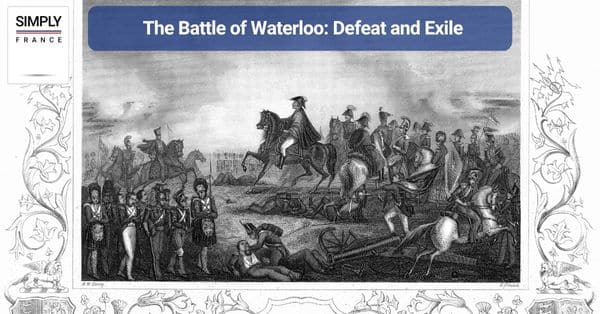
The Hundred Years’ War: France vs. England
The Hundred Years’ War, a series of conflicts between France and England, was a pivotal moment in European history. Lasting from 1337-1453, the war saw countless battles and military campaigns, many of which were led by the French army.
One of the most famous battles was the Battle of Crecy in 1346. Where the English archers and their longbows proved to be a formidable force against the French knights.
However, the French army also had its share of victories. Such as during the Battle of Orleans where Joan of Arc famously led the French against the English. The French army also had several famous military campaigns, including those led by knights such as Bertrand du Guesclin and Jean Bureau.
Despite the eventual English victory, the courage and strategy shown by the French soldiers and leaders during the Hundred Years’ War. Cemented their place in history as strong and tenacious warriors.
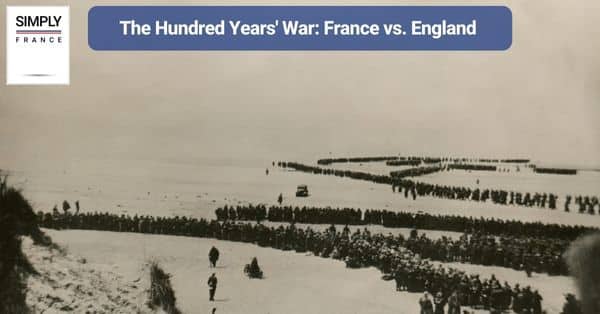
The Battle of Verdun: The Great War’s Bloodbath
The Battle of Verdun was one of the deadliest and most drawn-out battles of World War I. The French Army fought against the German Army in a battle that lasted 10 months, resulting in over 300,000 deaths and 500,000 wounded soldiers.
The battle was marked by an immense amount of artillery usage and was fought in harsh conditions, including the use of toxic gas. Despite being one of the deadliest battles of the war, the French Army managed to hold their ground and eventually emerge victorious. The Battle of Verdun remains an important part of French military history and is remembered for the sacrifices made by the soldiers who fought in this gruesome battle.
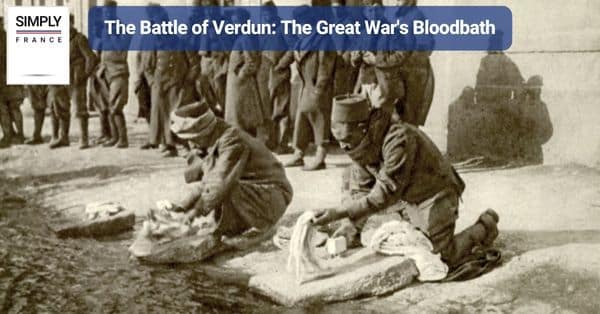
The Napoleonic Wars: Europe Conquered and Lost
The Napoleonic Wars were a period of intense conflict that swept across Europe in the early 19th century. Driven by the ambitious military campaigns of Napoleon Bonaparte. The French army marched across the continent, conquering new lands and toppling ancient regimes.
The wars saw some of the most famous battles in military history. Such as the Battle of Waterloo and the Battle of Austerlitz, which have been studied and analyzed by military tacticians for generations.
The Napoleonic Wars forever changed the balance of power in Europe, reshaping the geopolitical landscape for years to come. Despite ultimately being defeated, Napoleon’s military campaigns set a new standard for military strategy, tactics, and organization that would influence future conflicts around the world.

The Battle of Agincourt: A Medieval Clash
The Battle of Agincourt is one of the most well-known events from medieval Europe. In 1415, King Henry V of England led his troops against the French army. Which outnumbered them by a significant margin.
Despite the odds, the English archers proved to be a formidable force, raining arrows down on their enemies and creating chaos in the French ranks. The resulting victory was a major turning point in the Hundred Years’ War and cemented Henry’s reputation as a military leader.
But the battle was not just a momentous occasion for England. It also marked a significant defeat for the French army and a reminder of the need for military reform. The Battle of Agincourt remains a fascinating topic for historians and military enthusiasts alike, providing insight into the strategies and tactics of medieval warfare.
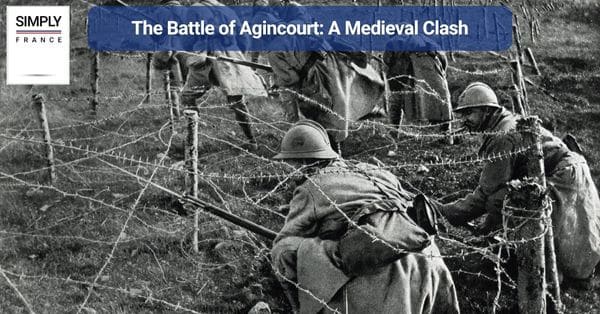
The Battle of Normandy: D-Day and the Liberation of France
A pivotal moment in World War II, and remains one of the most famous campaigns in military history. Known as D-Day, the landing operations on the beaches of Normandy on June 6, 1944. Marked the beginning of the end of the war and the liberation of France.
The sheer scale of the operation, involved over 156,000 Allied troops and thousands of ships and aircraft. Made it one of the largest amphibious landings in history.
The French Army played a key role in the Normandy campaign. With units such as the 2nd Armored Division fighting alongside their American and British counterparts to secure the beachhead and drive inland.
The bravery and sacrifice of the soldiers who fought in the Battle of Normandy will never be forgotten. And their legacy continues to inspire and inform military strategy to this day.
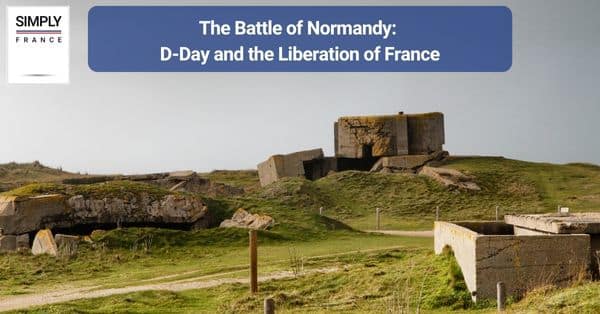
The French Revolution: From Bastille to Reign of Terror
The French Revolution spanned from 1789 to 1799. It was a transformative period that saw the radical overthrow of the monarchy. And the rise of a new era of political and social upheaval in France. It began with the storming of the Bastille, a symbol of royal authority, and quickly evolved into a revolution that challenged the existing social order.
The revolutionaries sought to establish a republic, leading to the execution of King Louis XVI and the Reign of Terror. A period marked by mass political purges and executions. The French Revolution forever changed the course of history, inspiring revolutionary movements across the globe and leaving a lasting legacy of democratic ideals and social transformation.

The Battle of Marne: Turning the Tide in World War I
The Battle of Marne was a crucial turning point in World War I. It is considered one of the most significant battles of the French Army. Taking place in September 1914, the battle marked the end of the German advance toward Paris and the beginning of trench warfare on the Western Front.
The battle was fought over four days and proved to be a decisive victory for the Allied forces. Under the leadership of French General Joseph Joffre. Employing new tactics, Joffre was able to halt the German advance and launch a successful counterattack. The Battle of Marne was a seminal moment in the course of the war and cemented the importance of trench warfare on the Western Front.
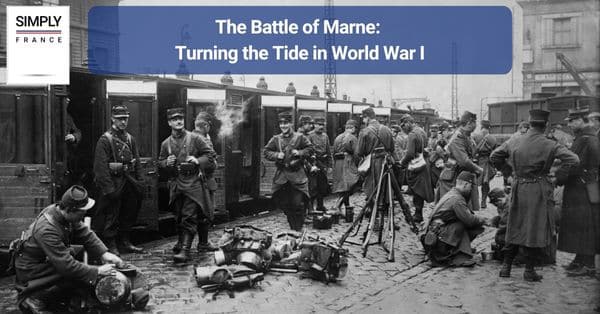
The Algerian War of Independence: Decolonization Struggle
The Algerian War of Independence spanned from 1954 to 1962. It was a protracted and brutal conflict between the National Liberation Front (FLN) and the French government. It was a pivotal decolonization struggle that sought to end France’s colonial rule over Algeria. The war witnessed guerrilla warfare, acts of terrorism, and mass mobilization of both sides.
The FLN’s fight for independence was met with harsh repression from the French government, resulting in widespread violence and atrocities. Ultimately, the war led to Algeria’s independence and served as a catalyst for decolonization movements around the world. Reshaping the global political landscape and challenging the notion of European colonial dominance.
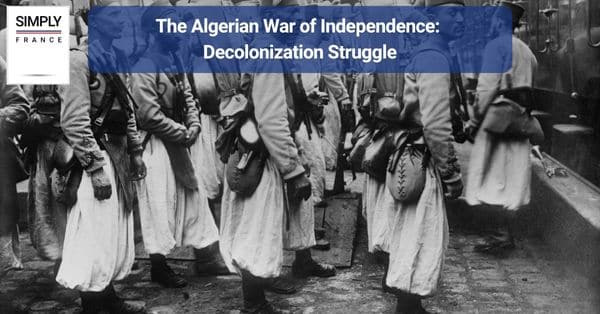
The Battle of Dien Bien Phu: France’s Defeat in Indochina
In the annals of military history, the Battle of Dien Bien Phu stands out as a poignant reminder of the consequences of underestimating one’s enemy. It was a major battle fought between the French Union forces and the Viet Minh communist revolutionaries in 1954. The French, who had been in Indochina for nearly a century, were confident that they would be able to suppress the rebellion and maintain their hold on Vietnam.
However, the Viet Minh, under the leadership of General Vo Nguyen Giap, had other plans. Through a combination of meticulous planning, terrain advantage, and sheer determination, the Viet Minh were able to surround and defeat the French army, resulting in the eventual French withdrawal from Indochina. The Battle of Dien Bien Phu served as a turning point in French military history and is considered one of the most significant battles of the 20th century.

The Battle of Trafalgar: Naval Supremacy Challenged
Fought on October 21, 1805, off the coast of Spain, was a momentous naval engagement that challenged the supremacy of the French and Spanish fleets. Led by Admiral Horatio Nelson. The British Royal Navy confronted a combined fleet of French and Spanish forces under Admiral Pierre-Charles Villeneuve.
Nelson devised a bold strategy, dividing his fleet into two columns and initiating a direct assault. Despite sustaining mortal wounds and losing his life during the battle. Nelson’s leadership and tactical brilliance secured a resounding victory for the British.
The Battle of Trafalgar not only cemented British naval dominance but also thwarted Napoleon’s ambitions of invading Britain. Altering the course of history and establishing Britain as the preeminent naval power for the years to come.
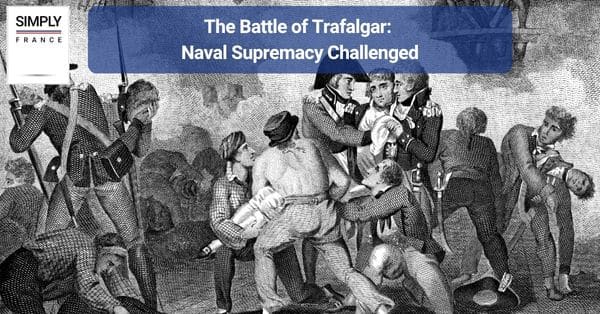
The French Foreign Legion: Tales of Heroism and Adventure
The French Foreign Legion has a rich history of heroism, adventure, and dedication to the French Army. Its members come from all corners of the world, bound together by a shared love of service and a desire to test themselves in the field. From the sands of North Africa to the jungles of Southeast Asia, the Legion has played a crucial role in some of the most famous military campaigns of the 20th century.
Their bravery and commitment to duty have earned them a reputation as fierce warriors, and their tradition of sacrifice and service continues to inspire soldiers around the globe. For anyone interested in military history or tales of triumph against all odds, the French Foreign Legion is a subject well worth exploring.

The Battle of Yorktown: French Allies Help Secure American Independence
The Battle of Yorktown was fought from September 28 to October 19, 1781, during the American Revolutionary War. Marked a pivotal moment in securing American independence with significant assistance from French allies.
The American Continental Army, led by General George Washington, joined forces with the French Army. Commanded by General Comte de Rochambeau to lay siege to the British forces under General Cornwallis in Yorktown, Virginia.
The French Navy, under Admiral de Grasse, played a crucial role by blockading the British fleet, preventing their escape or reinforcement. The combined efforts of American and French forces resulted in the surrender of Cornwallis. Ultimately leading to the recognition of American independence by the British and setting the stage for the Treaty of Paris in 1783, which formally ended the Revolutionary War.
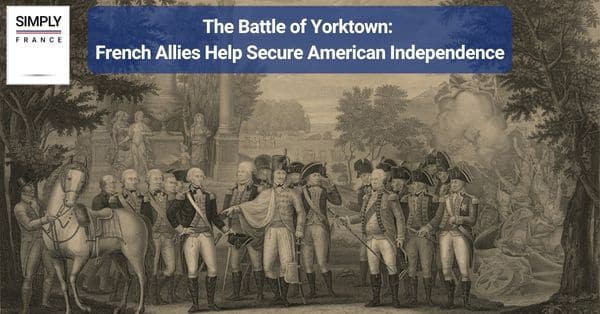
The Battle of Algiers: Urban Warfare and Counterinsurgency
The Battle of Algiers is widely regarded as one of the most significant conflicts in the history of urban warfare and counterinsurgency. It was a brutal, bloody engagement that lasted for several years. Pitting the French Army against a determined Algerian nationalist movement.
The campaign featured a range of tactics, including guerilla warfare, terrorism, and propaganda. Served as a blueprint for many subsequent military campaigns around the world.
Despite the French Army’s vast military superiority, they ultimately failed to defeat the Algerian resistance. Leading to a protracted and difficult war that would shape the political and cultural landscape of Algeria for decades to come.
Today, the Battle of Algiers remains a powerful symbol of the challenges and complexities of modern warfare. And continues to be studied and analyzed by military strategists and historians around the world.
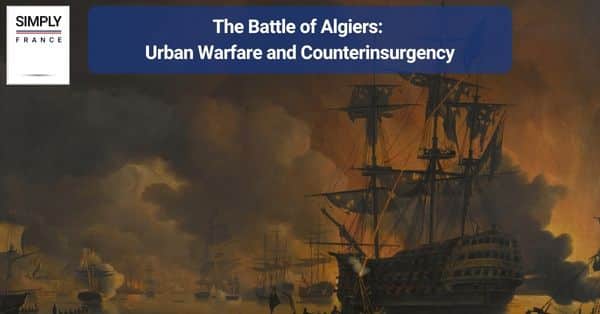
In conclusion
The French Army has a long and storied history of conflict, with many iconic battles that have shaped the course of European and world history. From Napoleon’s victories to the Algerian War of Independence. These battles and military campaigns demonstrate the power and resilience of France’s armed forces throughout the ages.
Whether it was a decisive victory or a tragic loss. All of these events have combined to form an integral part of French history that still resonates today.


